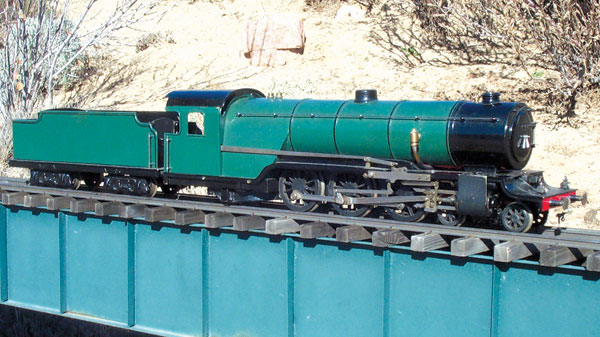
Lillian “Curly” Lawrence and the history of live-steam locomotives Lillian “Curly” Lawrence was a British model engineer who lived from 1882 to 1967. He built his first live-steam locomotive at the age of 13 on a used treadle lathe. A curious and reclusive fellow, he wrote live-steam columns for British model-engineering magazines under the pen […]
Read More…
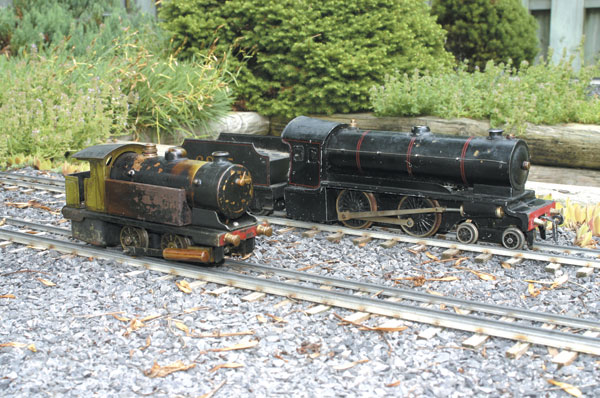
A pair of well used, tinplate live steamers. The engine in the foreground is by Bowman; the one behind is Bassett-Lowke. Despite their tatty appearance, they are both in good operating condition and see regular use in the garden. Jeff Young An important part of the history of small-scale live steam is the tinplate locomotives […]
Read More…

The No. 24 was the last locomotive supplied to the two-foot gauge Sandy River & Rangeley Lakes Railroad in Maine. This G scale live steam model was manufactured by Roundhouse Engineering of Doncaster, England. Kenneth Matticks Gas is added through the filler valve in the center of the tank. By watching the pressure gauge and […]
Read More…
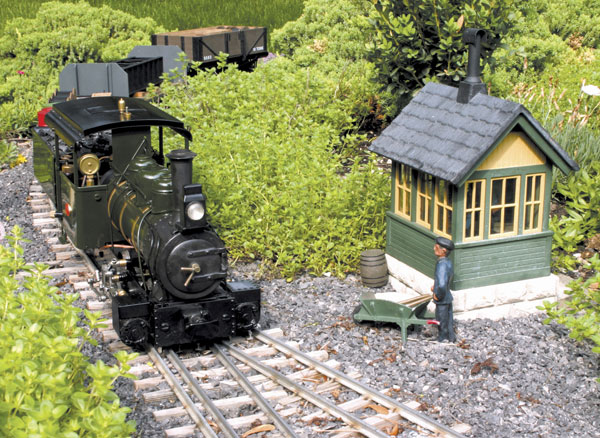
A Roundhouse “Fowler,” fitted with a coal-fired boiler by John Shawe, at work on the author’s garden railway near Toronto. Jeff Young When we acquire a small-scale live steamer, it is usually to run on an established garden railway. The selection of your live-steam locomotive was probably influenced by the physical characteristics of the existing […]
Read More…
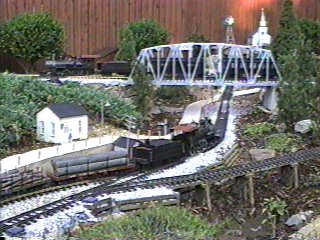
Marc Horovitz When trains run over and under bridges and trestles, a garden railroad becomes more interesting to watch Randy Mower Marc Horovitz Marc Horovitz Many garden railways occupy a corner of the back yard in an area big enough for only a simple loop of track. Although an HO or N scale railroad would […]
Read More…
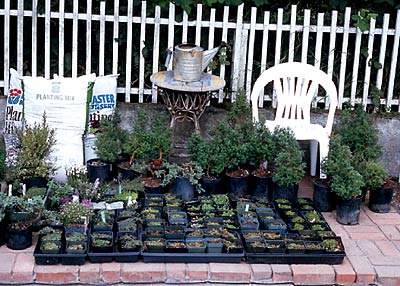
A variety of plants have been chosen to populate the railway. Marc Horovitz While building the railroad we casually discussed plant material. What would look good here, what kind of effect were we trying to create there, how should we plant this rock formation? So, when it finally came down to it, we had a […]
Read More…
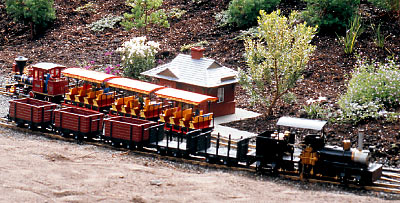
Small trains give the illusion of traveling long distances in a garden railway. Marc Horovitz As mentioned in the first installment, since we had a little, tiny railroad, small equipment was called for. The smaller the equipment, we reasoned, the greater the illusion of distance travelled. So, we opted for the smallest equipment we could […]
Read More…
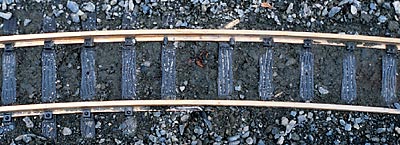
The importance of ballasting gauge-1 track: LGB track is heavy enough to float by itself in ballast, just like full-size railroad track. The ballast not only provides a good, solid base for the track, it keeps the track away from the soil and provides good drainage. Before we could begin ballasting, we had to remove […]
Read More…
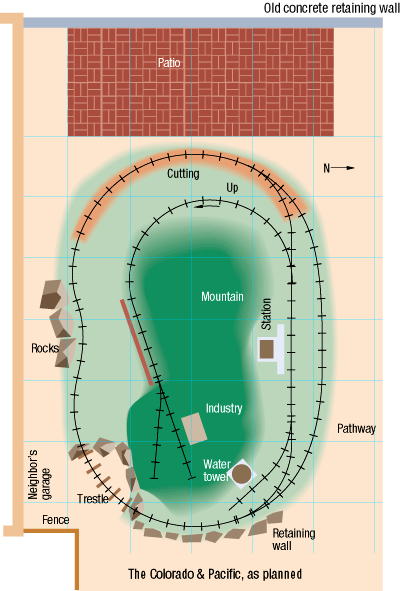
Marc Horovitz Before we could start building, we needed a track plan. But before we could design our plan, we needed to know what sort of railway we wanted and what was possible. This was an important part of the process and not one to be glossed over. Rod and I sat down and discussed […]
Read More…
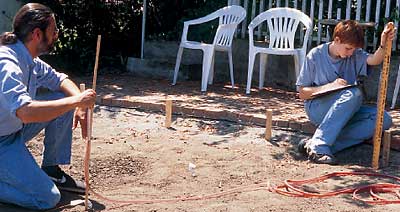
Adriane stays at stake #1 while I move around the yard. Here, the string has been tied to the second set of stakes. I call out dimensions while Adriane notes them on the site plan. A small passenger train is ready to depart the station on the newly completed Colorado & Pacific Marc Horovitz Marc […]
Read More…
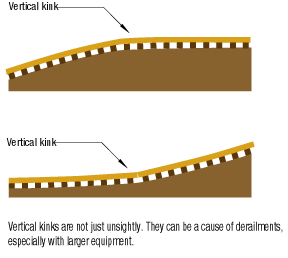
Marc Horovitz Adriane curves the rail in a bench-mounted rail bender. Marc Horovitz I confess to being something of a track fanatic. I love track. To me, the railway is the track. Track can make or break a line. No matter how beautiful or well thought out the rest of the railroad is, poor trackwork […]
Read More…
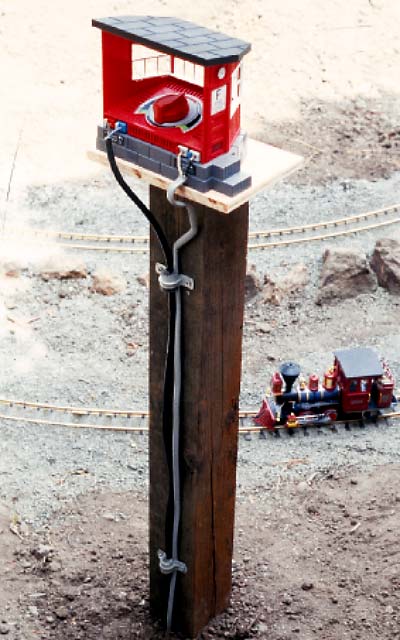
This wooden column supports the control center. Leads have been neatly attached to it. Marc Horovitz Small trains give the illusion of traveling long distances in a garden railway. Marc Horovitz With our trackwork complete, we could now turn our thoughts toward wiring the Colorado & Pacific. Since ours was a small railroad, wiring would […]
Read More…












